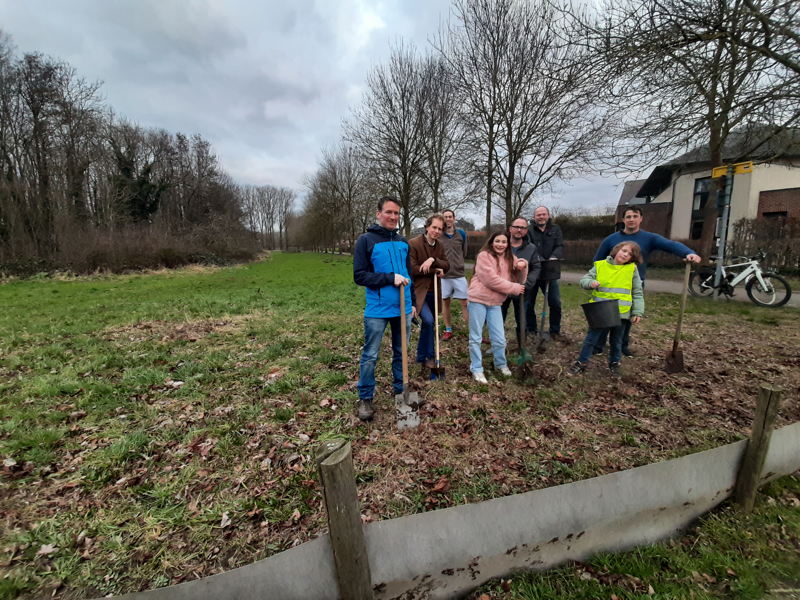Thessaloniki gets ready for its metro launch in November
The underground rapid transit lines have been under construction for almost two decades due to various project delays
 TheMayor.EU logo
TheMayor.EU logo When the animals wake up from winter hibernation, they head to the nearest water basin and, unfortunately, many of them have to cross busy roads
Today, local authorities in Leuven, Belgium, announced a package of measures aimed at helping amphibians ‘cross the road’. In February and March, they awaken from winter hibernation and flock to streams and water basins to reproduce.
Many toads and salamanders, however, have to cross busy roads to reach their destination and run a high risk of being run over.
This is the second year in a row Leuven has decided to launch the package of measures aimed at protecting local biodiversity. Measures include special signs along certain roads, asking drivers to be more attentive, as well as a volunteer force ready to transfer toads and salamanders to the river basins.
According to a statement by David Dessers, Alderman for Climate and Sustainability, the city is in close collaboration with teams from Natuurpunt, a Flemish nature conservation group, who will provide the necessary expertise to carry out the operation.
 Some volunteers have put up screens that will prevent
Some volunteers have put up screens that will prevent
the animals from crossing, making them easier to collect,
Source: City of Leuven
In early spring, when the first warmer rain hits the ground and the temperature rises to around seven degrees, the amphibians start to wake from their winter hibernation. Their biological alarm goes off and their first instinct is to leave their hiding place and move towards the water.
Authorities will monitor weather conditions and stand by for when conditions are right to send in the volunteer collectors. The collectors, in their own right, will be quite recognisable, wearing rubber boots, orange vests and buckets. They will scour the streets, the sidewalks, the gutters and parks.
Usually, hundreds of toads salamanders make their way to Abdij van Park (Abby Park) in the south of the city. According to a statement by the city, the toads have little trouble reaching the lake in the park, however, salamanders have a tougher time.
At night they crawl through a local bicycle and pedestrian tunnel and in the morning, usually, there are still a few left in the middle of the road. This is because they are cold-blooded and at night when the temperature goes down, they can barely move and have to stop completely.
The statement by the city reads: “Unfortunately, these animals are often run over by cyclists on their way to work or school.”
Thus, authorities are urging citizens to stop when they see a salamander, pick it up gently and put it on the side of the road, closer to a water basin.

The underground rapid transit lines have been under construction for almost two decades due to various project delays

Now you can get your wine in Talence by paying directly in Bitcoin

That’s because the state has to spend money on updating the railway infrastructure rather than subsidizing the cost of the popular pass

Rethinking renewable energy sources for the urban landscape

The examples, compiled by Beyond Fossil Fuels, can inform and inspire communities and entrepreneurs that still feel trepidation at the prospect of energy transition

Now you can get your wine in Talence by paying directly in Bitcoin

The 10th European Conference on Sustainable Cities and Towns (ESCT) sets the stage for stronger cooperation between the EU, national and local level to fast track Europe's transition to climate neutrality.

At least, that’s the promise made by the mayor of Paris, Anne Hidalgo

The underground rapid transit lines have been under construction for almost two decades due to various project delays

At least, that’s the promise made by the mayor of Paris, Anne Hidalgo

Hostal de Pinós is located in the geographical centre of the autonomous region

Despite its church-y name, the district has long been known as the hangout spot for the artsy crowds

Urban dwellers across the EU are having a say in making their surroundings friendlier to people and the environment.

Forests in the EU can help green the European construction industry and bolster a continent-wide push for architectural improvements.

Apply by 10 November and do your part for the transformation of European public spaces

An interview with the Mayor of a Polish city that seeks to reinvent itself

An interview with the newly elected ICLEI President and Mayor of Malmö

A conversation with the Mayor of Lisbon about the spirit and dimensions of innovation present in the Portuguese capital














